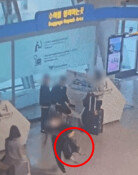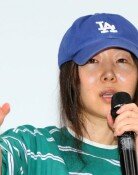Has the era of ideologies ended?
President Lee Myung-bak said in a congratulatory speech before taking office on March 1 Independence Movement Day in 2008, The era of ideologies has gone. He meant that South Korea cannot join the ranks of advanced countries if it remains captured by old ideologies, but his comments can be interpreted that ideologies are not important. Apparently to avoid the criticism of launching ideological attacks and emphasizing centrist pragmatism, he has paid no attention to strengthening national fundamentals.
Since the inter-Korean joint declaration made in 2000, South Korea has seen the emergence of pro-North Korea forces that seek the dissolution of the bilateral alliance with the U.S. and Korean reunification under a federal system advocated by the North. Shockingly, those who say Pro-America is more problematic than pro-North Korea have been elected lawmakers. The progressive ideas that they are advocating are not for the benefit of the weak or disadvantaged or similar to socialism or social democracy that European leftist parties have adopted. Pro-North Korea forces think that the North Korean government is legitimate and are engrossed in the old ideology that seeks to change the Souths free democratic system. If President Lee was unaware of secretive activities of the pro-North Korea forces, he is incapable as president. If he had turned a blind eye to them, this constitutes betrayal to the people.
Taking a lesson from President Lees mistake, voters must scrutinize the ideologies of candidates in the December presidential election. Ahn Cheol-soo, former IT guru-turned-professor and dean of Seoul National University`s Graduate School of Convergence Science and Technology, once said, Where are the commies in these modern days? Yet he should make clear whether he can make the same comment now. If Ahn has yet to realize the seriously negative impact of pro-North Korea forces, he is obviously ignorant of an issue through which the countrys fate can be determined. Ahn should make his stance clear whether to join forces with the main opposition Democratic United Party, which seeks to establish a ruling coalition government by uniting with the minor opposition United Progressive Party, which is heavily influenced by pro-North Korea figures.
Moon Sung-keun, a supreme committee member of the main opposition party, should answer whether he was aware that a person who served eight years in prison for espionage worked as a teacher at Neutbom Moon Ik-Hwan School, where Moon Sung-keun is honorary chairman of the board, and read the Norths congratulatory message at the schools graduation ceremony. The school founders might have set up a school directly managed by the ruling Workers Party of North Korea. People also want to hear from Moon Jae-in and Lee Hae-chan, senior advisers to the Democratic United Party, on if they still want to join hands with the progressive party.
Though President Lee was elected thanks to support from conservative forces, he has failed to meet the demand of the times by clinging to the attitude of no concept. Over his remaining term in office, President Lee should fulfill his duties as president by cracking down on those who commit activities that violate the spirit of the Constitution. Prosecutor General Han Sang-dae, who said in his inauguration speech in August last year that pro-North Korea forces must be punished and removed, should also take action to root out such forces.







